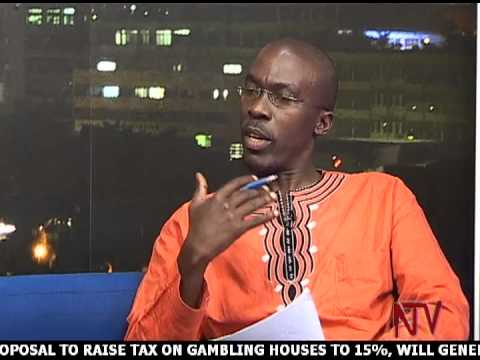By Julius Kapwepwe
The National Budget Framework Paper (NBFP) FY 2018/19 was formally released recently by the Ministry of Finance and Economic Development in compliance with Section 13 (2) of the Public Finance Management (PFM) Act 2015. The NBFP stipulates that government is to run a budget of about Shs 29.274 trillions of which only Shs12.744 trillion (43.5%) will be available for service delivery excluding budget and project support, debt repayments and domestic refinancing.
The Auditor General report 2016/17 shows that Government has Shs2.908 trillion as outstanding commitments by the end of June 2017. Of this Shs27.755bn was not supported with adequate information as such a possible leakage onto which IGG needs to swing into action.
The key strategic objective for the Works and Transport Sector is to: “Promote Adequate, Safe and Well Maintained Works and Transport Infrastructure and Services for Social Economic Development of the Country. The sector has 3 strategic outcomes: improving the condition of the road network (both paved and unpaved), ensuring safe and efficient construction works and ensuring safe, efficient and effective transport infrastructure and services for the people of Uganda.
The sectoral allocations are projected to reach Shs6 trillion in FY 2018/19 representing 24% nominal increase in the allocations from FY 2017/18. UNRA continues to account for the last share (63%) of the works and transport sector with the projected allocations of Shs3, 820.28 billion for FY 2018/19. The fastest nominal increment is to the Works and Transport vote reflecting the increased allocations to Standard Gauge Railway, airport development and capacity enhancement as well as increased undertakings on Bukasa and Port Bell ports.
The coverage of paved national roads increased by 100kms in 2016/17 reaching 4,257km compared to 3,264kms in FY2010/11. However, the added kilometers (KMs) in 2016/17 are less than the average annual KMs over the last 4 years, not commensurate to the increases in allocations to the sector for road network. The proportion of paved national roads and for unpaved roads in fair to good condition respectively reached the targeted 80% and 70% in FY 2016/17.
Road maintenance budget was increased to UGX 417.4 billion compared to FY 2016/17 outturn of Shs 343.7 billion and is expected to continue increasing however, the road maintenance backlog continued to grow in excess of USD 1 billion. The sector met the target on routine maintenance of unpaved roads (mechanized) and 160km of the paved roads were rehabilitated to reinstate their service ability continued to grow in excess of USD 1 Billion.
While the transport sector predominates as the largest share of the budget, absorption and implementation challenges continue to prevail. Despite not fully spending less than Shs3 trillion in FY 2016/17, the sector budget is expected to reach Shs 6 trillion. The key challenge will remain on the effective utilization of the increased allocations which are externally financed.
Absorption of loans signed over the last decade for the sector is only at 40%. Local content remains a challenge and the NBFP is not explicit on the modes of addressing this challenge. The front loading of projects exacerbates the sub -optimal absorption of resources but also raises question on the economic viability of the key infrastructural projects in the short term for example the undertaking of both the Bukasa and Port Bell in land ports.
The revival of the national carrier requires holistic stakeholder engagement. The passing of the draft roads bill that provides for the collection of road tolls will be imperative. The NBFP makes no mention of road safety yet the fatalities are on the increase.
The works and transport sector is one of the well-funded sectors in Uganda, however, there is need to increase efficiency and effectiveness to address leakages in the financial flow within the sector. Weak public investment management, particularly with project preparation, underscores the need for sequencing of projects based on the readiness.
The Writer is Director of Programmes, Uganda Debt Network








